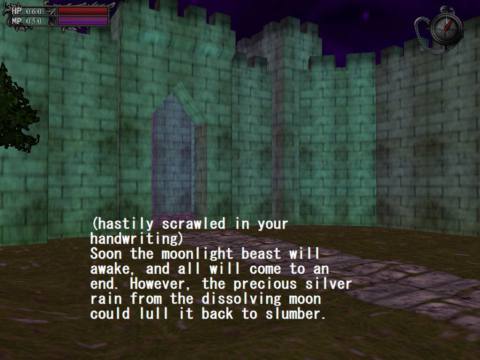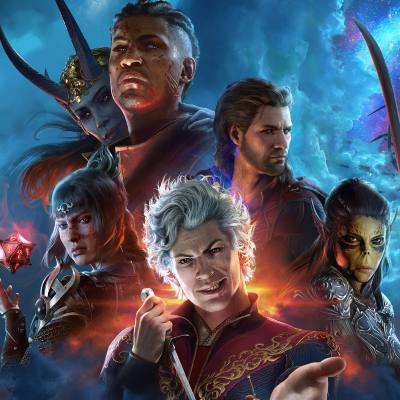What is it? A turn-based roguelike that challenges you to master the blade. Or several blades, actually.
Release date September 5, 2024
Expect to pay $15/£12.80
Developer Roboatino
Publisher Goblinz Publishing, Gamera Games
Reviewed on Nvidia Geforce RTX 3080, AMD Ryzen 9 5900X, 32GB RAM
Steam Deck Verified
Link Official site
Some roguelikes are about scraping through by the skin of your teeth. Shogun Showdown is about striving for perfection. Defeating each of its rooms filled with hostile ashigaru warriors is its own challenge, but the greater quest is to do it in style.
Simply defeating the demonic Shogun and his army of warriors isn’t enough—it must be done with elegance. A true warrior slices their way to the castle without taking a hit, and never makes a move unless it’s precisely necessary, defeating multiple foes with every quick flurry of attacks. And ideally they do it in 30 minutes or less.
You start each run with two tiles—these are your weapon attacks, each specific in their use. As you defeat foes, you gain new tiles and can upgrade the ones you have. The feel of a deckbuilder is there, even if I struggle to call a handful of tiles a deck.
Battles are 2D and turn-based. Almost every action takes a turn—hopping a space left or right, flipping your character around, or queuing up tiles—and once you’ve done it, all your foes will get their next move.
Success is all about thinking several steps ahead. You always know what your enemies are going to do for their next action—in fact, because they follow predictable patterns, you’ll know their steps beyond that once you learn their behaviours. You’re able to queue up to three of your tiles before you unleash them, going off one by one in a single turn. The trick, then, is surviving—dancing back and forth around attacks—until you’ve set up the perfect flurry of blows that wipes out two, three, even four foes at once, clearing the field for the next wave.
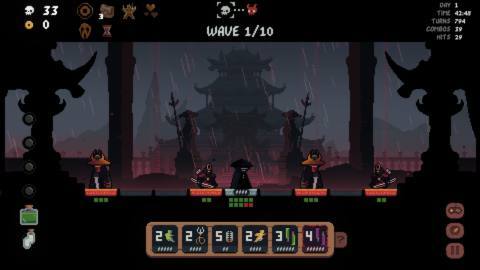
When you’re firing on all cylinders, it feels like directing the coolest samurai movie you’ve ever seen. Each tile is specific in its use—always doing the same damage, striking in the same position relative to your character, and having the same effects—but the impressive variety of them, combined with the special ability of each playable character and the upgrades you can gain between fights, allows every run to generate its own wild combos.
Before you know it you’re slamming an enemy into another with your ability, then piercing through both of them with a spear and sliding backwards into a third to hit them with a backwards stab. Or summoning a wall of thorns, shoving it forward into someone’s face with a wave of ki, and then finishing them off with a poison arrow. Or swapping places with an enemy about to swing so they smack one of their allies instead, judo-throwing them over your head into someone else, dropping a bear trap at your feet, and then yanking them back into it with a rope dart.
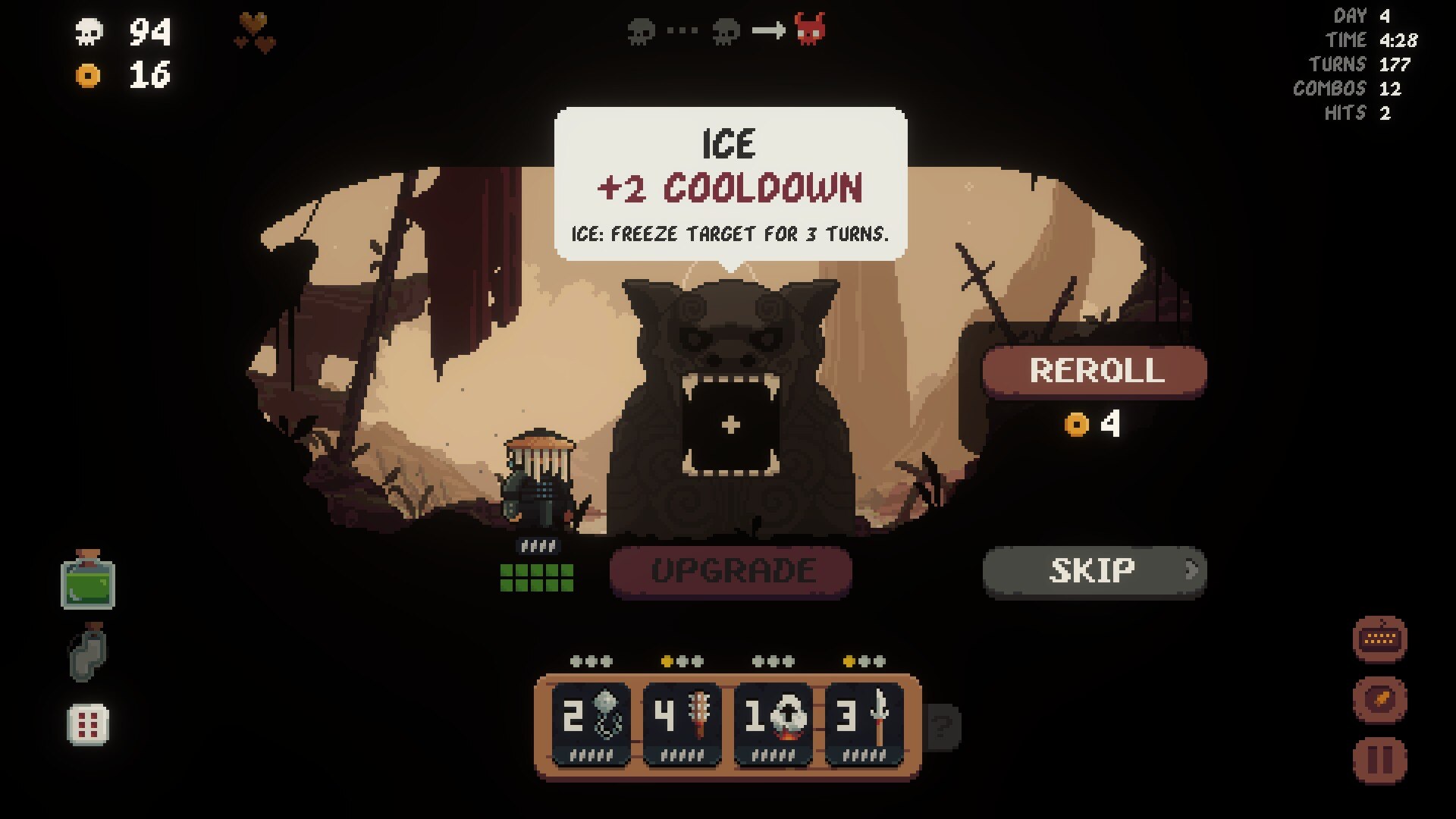
It’s possible to simply muddle through—playing conservatively, throwing out simple attacks one at a time, taking a bit of damage but healing enough to get by—but the game subtly chastises you. Combo kills (multiple kills in one turn) can trigger various powerful effects, and in many cases are necessary to avoid damage—such as when an enemy is just waiting behind their friend ready to launch an attack once their line of fire is clear. Your stats for a run, including total combos, hits taken, and even the number of turns used, are tracked on screen at all times, and good performance in each gates certain unlocks between runs. Even the victory screen for each level subtly judges you. If you win with no hits you “Obliterated” that stage, whereas if you took a hit or two you only “Cleared” it—and pray you never know the shame of being told you simply “Survived”.
It’s a gentle cajoling that pushes you to play better and most importantly cooler. As you engage previously dormant neurons in your brain, your strategies get ever more efficient, and the right combo, refined with elemental upgrades, cooldown reduction, damage bonuses, artifacts, and more, starts to feel unstoppable. The elegant interface—so streamlined you can play the entire game with just the two mouse buttons and the scroll wheel—and the run timer encourage you to go faster and faster the more arrogant you become. That is, until hubris brings you low, and you accidentally run headfirst into a sword you could clearly see was about to swing. Oh well—dust yourself off and get ready for another run.
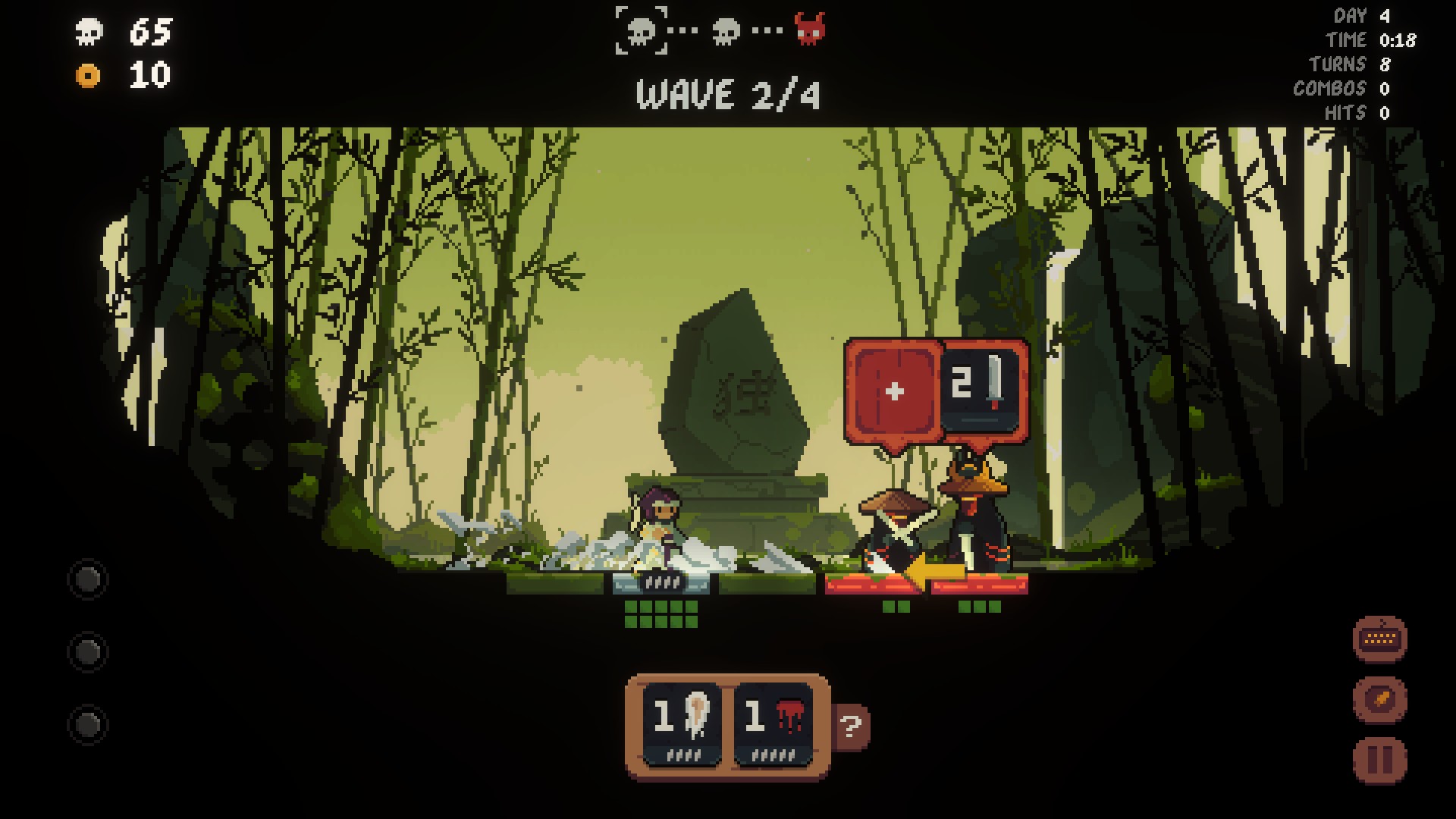
It’s accessible strategy but with tons of depth to dig into. Beating the Shogun for the first time is only the beginning, as you go on to ratchet up through ever tougher difficulty levels, try to get a full set of stamps (awards for good performance in a run) for each character, complete challenges, and unlock ever stranger and more nuanced attack tiles. After 35 hours, spread throughout the game’s journey through early access and after its launch, I still feel like I’ve got loads more to see—and much more to learn.
Don’t be fooled by Shogun Showdown’s simple, cute appearance—this is a game determined to sharpen your mind into a deadly blade. Even in a golden age for the genre, it stands out as one of the most compelling roguelikes available today


